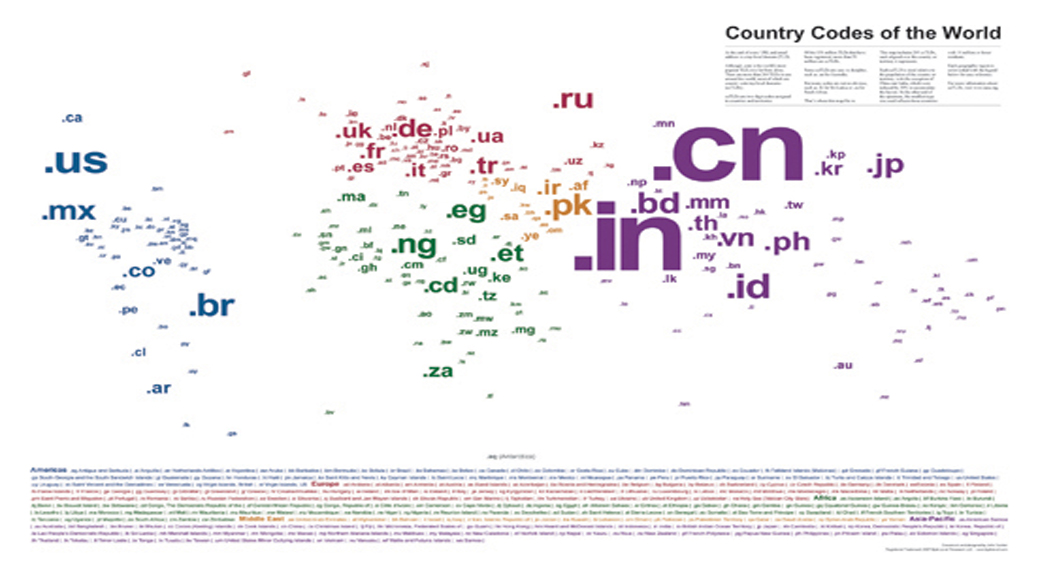The Internet finds itself in a “web” these days, a web of polarizing powers and conflicting interests; a web that could possibly result in changing the Internet as we know it. Attempting to untangle this web is no mean feat.
The Internet is best defined by the values that formed it. These values are of “open” code or software that govern the Internet, whose source is available to all and can be taken, modified and improved. It is these ideals that many still hope to preserve in today’s Internet governance.
The International Corporation for Assigned Names and Numbers (ICANN) was established as a California nonprofit corporation in 1998. ICANN was set up by the Department of Commerce of the U.S government to take centralized control of the coordination of the Internet’s domain name and address assignments. ICANN was deliberately set up as a private sector, multistakeholder governance organization, one that is focused on decentralized regulation with limited governmental input. Importantly, it retained its contractual relations with the National Telecommunications and Information Administration (NTIA) under the Department of Commerce thereby enabling the government to maintain unilateral oversight of ICANN and act as a policy police.
IANA, standing for Internet Assigned Numbers Authority, is a department within the ICANN that allocates globally unique names and numbers that are used in Internet protocols. Before the ICANN was established primarily involving this purpose, the IANA was administered principally by Jon Postel at the Information Sciences Institute (ISI) of the University of Southern California (USC) situated under a contract with the United States Department of Defense until ICANN was created.
On March 14th of this year, the U.S. government announced that it would seek to give up its control in the management of Internet names and numbers. This announcement which was long awaited by many was seen as a peace offering by the U.S after the fallout from NSA spying that was seen around the world. There were others who were cynical about the significance of this move and questioned if U.S had much involvement in ICANN functions to begin with, even calling it a “misguided freakout”. And there were some others who considered this as U.S “surrendering” their power and handing it over to China and Russia, an outcome dreaded by supporters of free Internet.
The Berkman Center for Internet and Society at Harvard University in a discussion dealt with these possibilities about the future of ICANN. Jonathan Zittrain, a prominent voice in Internet Governance, argues that this announcement will have no effect on U.S snooping on other countries, as they can still continue to do so. Further, we are reminded of the possibility that US may not even follow through with their announcement seeing as they can still extend the contract for another four years. Authors are also quick to point out that the US Executive has vowed to transfer control of the Internet without actual congressional approval.
In April 2014, the NETmundial conference which was a global multistakeholder meeting on the future of Internet Governance held in Brazil, welcomed this move with regard to the intent to transition the stewardship of IANA functions. The Multistakeholder Statement insists that the transition “should be conducted thoughtfully with a focus on maintaining the security and stability of the Internet, empowering the principle of equal participation among all stakeholder groups and striving towards a completed transition by September 2015.”
It is unclear who will be replacing the U.S or if anyone will replace it at all. However, the transition looks to be under-way. The ICANN on its part, being the convener of the process to develop a transition proposal has created an IANA Stewardship Transition Coordination Group (ICG) in order to involve the global stakeholders. Vint Cerf, one of the fathers of the Internet explains the rather complicated ICANN and IANA transition in an animated video.
ICANN in their draft of the principles and mechanisms, and process for developing a transition of the IANA released in April had excluded IANA functions from the scope of the transition. However both in NETmundial and in the IGF meeting held last month, it has been agreed that issues of ICANN accountability and IANA stewardship transition are in fact interrelated and the ICG will receive proposals till the end of this year on a replacement stewardship model now that the U.S administration’s term has ended.
While one can’t be sure if the fate of the Internet is changed forever, there is no denying the significance of this decision. Professor Milton Mueller in a recent discussion said that the ICANN transition is the canary in a coal mine when it comes to executing the multistakeholder model of governance in Internet. He said if we can’t get this right, we probably won’t get the whole thing right.
